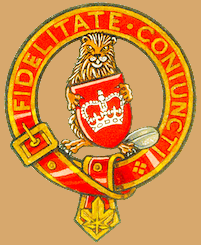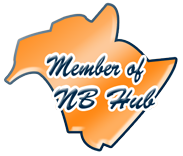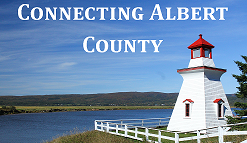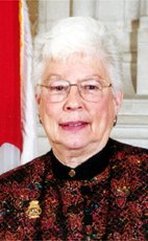 Grand Council Flag
Grand Council Flag hereditary chief traditions of certain
West Coast First Nations. Little did I
know at the time that the East Coast
also has at least one comparable
position. The position in question is
the Grand Chief (of the Mi'kmaw). The
position of Grand Chief has gone
through many changes through the
years both in its selection and its role.
This is to be expected. Societies change
as their needs change but through it all
the Grand Chief has been an important
office to the Mi'kmaw. This article is a
brief overview of the office of Grand
Chief along with the related institution
of the Grand Council.
Partial List of Grand Chiefs
Chief Membertou is an important figure in the history of
relations between the French and the Mi'kmaw on whom I
will need to do a dedicated article at some point. It is not clear
whether the office of Grand Chief (Kji-Saqmaw) had existed
prior to Chief Membertou being appointed to it in 1550, was
always an active position, or whether he was the first leader of
the Mi'kmaw to be appointed as such by the consensus of the
regional chiefs. His long life and conversion to Christianity
helped cement an alliance between his people and the French.
Louis Membertou
The process for choosing a new Grand Chief after the death of Henri Membertou is not clear in this early period. Hereditary succession was practiced among the Mi'kmaw and in later times the position was hereditary. From this we can assume
that Louis Membertou, as eldest son, succeeded his father. It
is known he was being trained to take over Henri's other roles.
The position of Grand Chief disappears from the historical
record (the Grand Council only slightly less so). During this
'dark age' it is thought both institutions continued to exist but
the pressures of advancing European settlement, break down
in traditional social structures, and depopulation had led the
Grand Council to meet rarely or in secret.
Grand Chiefs Tomah Denys & Jean Baptiste Cope
When the position of Grand Chief is next mentioned in the
mid-1700s there are two contenders. It may be that the
French recognized one while the British recognized the other.
The question of which was the more legitimate candidate is an
interesting one. Tomah Denys resided on Cape Breton Island, which has special significance to the Mi'kmaw. The family
name of Denys is also common among later Grand Chiefs.
Finally, he was allied with the Mi'kmaw's traditional friends, the French. Jean Baptiste Cope lived on the mainland and was
often referred to by the military rank of Major. He did seek a
treaty of peace and friendship with the British in 1752 which
was presented to, and accepted by, the Grand Council. It is
clear that Mi'kmaw society was becoming divided with
different groups siding with one colonial power or the other.
By the end of the 1700s Mi'kmaw society seems to have
stabilized somewhat and a more complete list of Grand Chiefs
is known. However, it should be noted that several contenders
continued to be named Grand Chief during this period but we
will stick with the more recognized line.
Francis Peck (Grand Chief 1792-1818)
Michael Tooma (Grand Chief 1818-1842)
Frank Tooma Jr. (Grand Chief 1842-1869)
John Denys (Grand Chief 1869-1887)
John Denys Jr. (born 1851, Grand Chief 1887-1918)
The greatest change to the office of Grand Chief would occur
during John Denys Jr.'s time as Grand Chief. He instructed
his successor be elected for life rather than appoint his son.
There are varying accounts of whether this was supposed to
be a permanent change or a temporary measure until his son
was a bit older. John Denys Jr. is said to have felt the pressure
of the position would be too much for his son at the time.
Gabriel Sylliboy (born 1874, Grand Chief 1918-1964)
The first of the elected Grand Chiefs. He would fight for the
Mi'kmaw's historic treaty rights to be recognized and was the
first to invoke the treaties in a court of law.
Donald Marshall Sr. (born 1925, Grand Chief 1964-1991)
Benjamin Sylliboy (born 1941, Grand Chief 1991-2017)
As Donald Marshall Sr. neared the end of his life he asked
Benjamin Sylliboy if he would take over for him as Grand
Chief. Benjamin Sylliboy's time as Grand Chief would be a
renaissance for the Grand Council as a traditional governing
body of the Mi'kmaw.
Norman Sylliboy (Grand Chief 2019-Present)
Descended from Gabriel Sylliboy and the current Grand Chief.
Norman Sylliboy has been asked by the Denys family to once
again make the position hereditary in their line. Norman is
said to be considering this.
Succession
early periods it was hereditary with an important caveat; an
unworthy heir could be by-passed with other candidates from
the Grand Chief's family being considered. In this way the
position of Grand Chief has always had elements of both
hereditary and elective succession.
The Grand Council
is the highest governing body of the Mi'kmaw. Its power and
role have fluctuated wildly throughout its history. Early on it
had a role in resolving disputes and making treaties. The
long periods in which the Mi'kmaw were not served by a
Catholic priest led to members of the Grand Council often
having to fulfill a priestly role. This adopted role may have
kept the Grand Council relevant as its political role
diminished almost to nothing in the 1800s. In recent years
the Grand Council is once again resuming its historic role of
being the body that represents the Mi'kmaw people.
Membership on the Grand Council has shifted over time but it
broadly had a three person executive (Grand Chief, Grand
Captain, Putus) and a representative from each of the seven
regions that made up the Mi'kmaw territory.
Further Reading:
- Mi'kmmey Mawio'mi: Changing Roles of the
Mi'kmaq Grand Council From the Early Seventeenth
Century to the Present
- The Mi'kmaq Grand Council
Loyally Yours,
A Kisaragi Colour
 RSS Feed
RSS Feed





